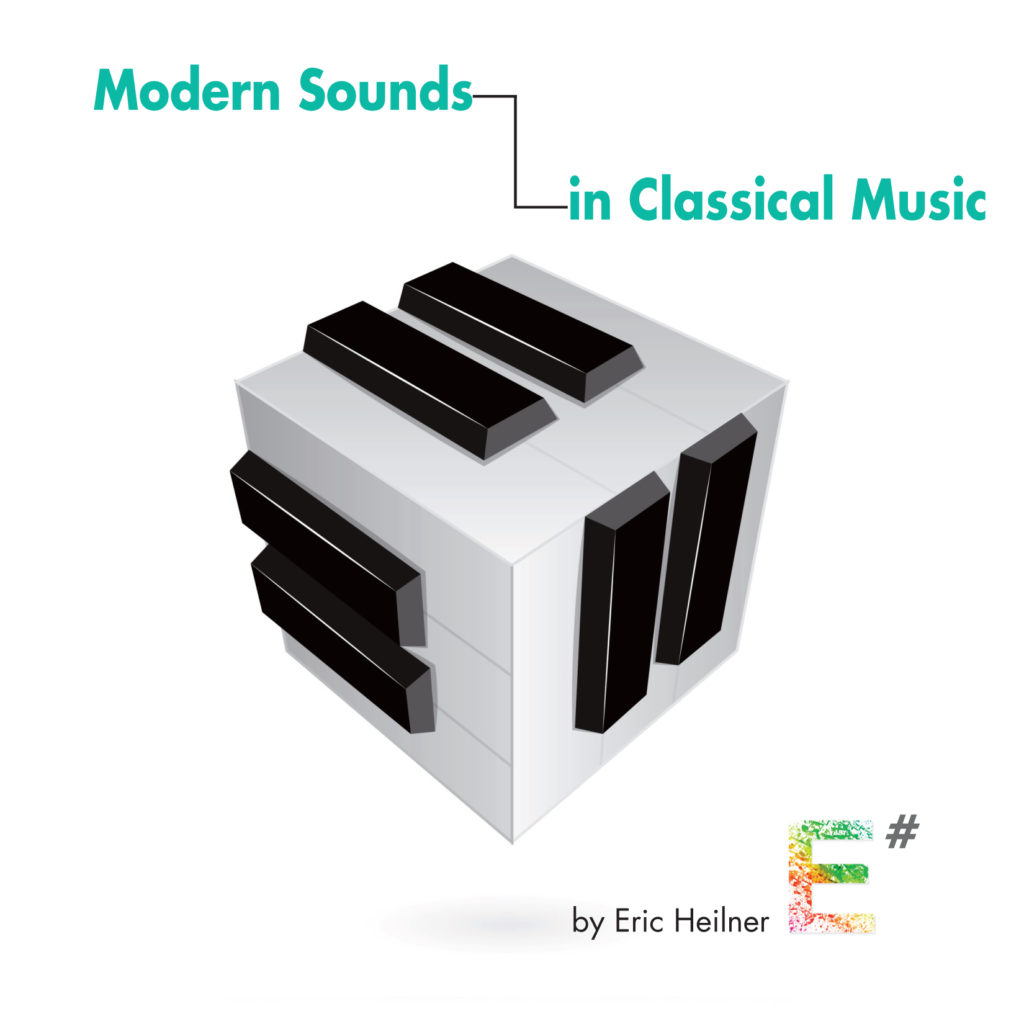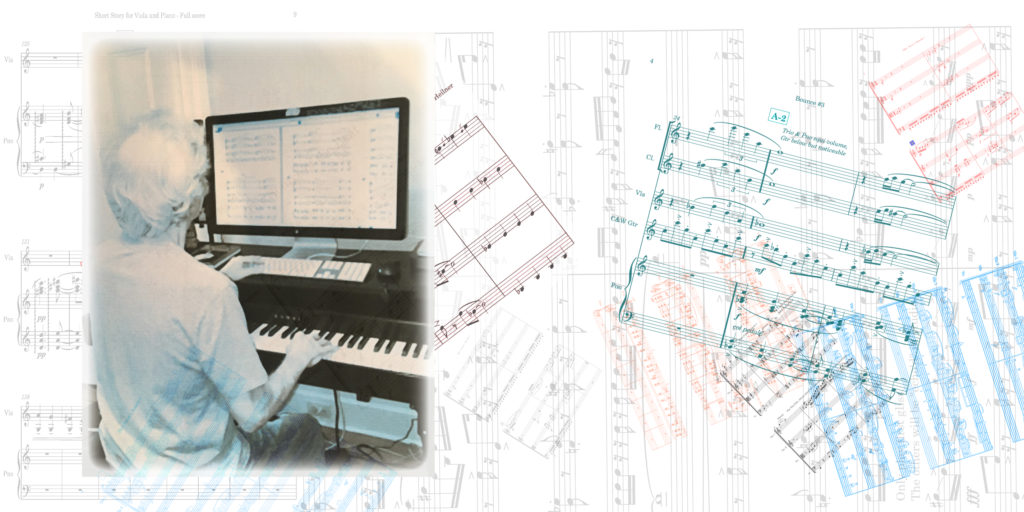


“This is music that breaks any pre-set mold and does so inventively… Eric Heilner has a natural talent and we are the better for hearing his music… Recommended.”
Gapplegate Classical-Modern Music Review
“An aptly titled debut, although Heilner has spent his life playing keyboards, it turns out that he’s talented at composing, too, as evidenced by this eclectic and adventurous effort.”
Take Effect
“The motoric drive in the first of the Episodes of the . . . string quartet seem to fuse a variety of traditions, from classical to post-minimalist, but not in a gimmicky way. I found my toes tapping.”
Evan Fein, Faculty, The Juilliard School, Pre-College & Evening Divisions
“The quartet is quite strong. It’s intense, virtuosic, and appealing … for lay audience (non-new-music-specialty audiences). [It is] a sound that non-musicians as well as musicians can respond to.”
Ray Lustig, Faculty, The Juilliard School, Evening Divisions
What it Is (written October 2020)
Modern Sounds in Classical Music has been in the works for almost 3 years now. For much of this time is seemed a bit like a dream – it was something that would happen in the distant future to someone else (certainly not I). And yet, here I am and here it is. This first album of my so-called classical compositions is now generally available for streaming & downloading on most digital platforms including Spotify, Apple Music, YouTube, etc, etc. If you are not on any platform, you can purchase a digital download on Bandcamp without having to sign up for anything. Physical CDs are not for sale just yet.
The album title is an homage to one of my musical idols’ albums – Ray Charles’ Modern Sounds in Country & Western Music. In choosing this title I realize that I have placed my scrawny musical neck on the critical chopping block and have left a large cleaving knife handy. . . .
The Music
“Talking about music is like dancing about architecture” – Unknown
Like (I’m assuming) most other people in a creative field, I try to keep up with what is happening in my particular niche. I try to listen to as broad a range of music as possible, and I read or listen to interviews with (and reviews of) other composers. And yet – and yet – I am still amazed that folks can talk at length about what their music means and how they were inspired by some current or life event or some philosophical/religious belief and/or they are guided by some particular musical framework. How do they do this (I ask myself)? I have no grand musical or philosophical treatise that I can expound upon to help folks better understand my music.
It sounds sort of dumb or obvious, but basically I’m just trying to compose music that I like to listen to.
My compositions come into existence via some combination of intuition, serendipitous luck, and often a whole lot of re-writing. As I compose, there usually comes a point where the piece “takes over” and starts dictating where it should go – but even then I often struggle to convert this “feeling” into the actual notes. I’m rarely 100% happy with any piece, but usually I’ll get to the point where it sounds decent enough to my ears – or at least nothing jumps out at me as being seriously out of place.
Otherwise we wouldn’t be here.
I’d add that I’m not good at the more technical aspects of composing. My sight reading skills are very limited. If I had not composed them myself I could not even look at my own scores and know what they sounded like. It is only through the use of computers and the advanced notation software that I’m able to realize these compositions at all.
My influences? Here’s a short (and abbreviated) list: Scarlatti, Bach, Haydn, Mozart, Beethoven, Chopin, Louis Armstrong, Duke Ellington, all the great boogie-woogie piano players (Meade Lux Lewis, etc), Miles, Broadway show tunes (West Side Story, My Fair Lady, etc.), The Beatles, Motown (Holland, Dozier, Holland), Stax, every hit single from the 60s, The Meters, Steely Dan, original field recordings of African music, etc, etc, etc.
As you listen to the pieces you will notice that the “bass” lines – mostly played by the cello – are evocative of things you have heard in pop music. This is no accident. Much of my composing is from the bass upwards (it’s all about that bass). My biggest influence in this regards is James Jamerson – the legendary bass player for Motown Records in the 60s. If there is one single key musical element which made Motown’s music work, it is the way Jamerson’s bass lines provide a framework around which the rest of music is structured. Two other bass players who factor into my style are George Porter from the legendary New Orleans based band The Meters,and (of all things) Paul McCartney’s work with The Beatles.
I would note that there are many gaps in my musical knowledge. I’m just starting to absorb Shostakovich, and I’ve recently become aware that there’s this music that’s very popular among these young kids today called, umm, rap? Some of it is very cool.
Credits
Composer: Eric Heilner
Producer: Jack Douglas
Lead Engineer: Jay Messina
Exercise for Viola & Piano
Recorded at IIWII, March 2018
Viola: Leah Asher
Piano: Erika Dohi
Bounce #3
Recorded at the Power Station at BerkleeNYC, November 2018
Flute: Laura Cocks
Clarinet: John Hong
Viola: Laura Thompson
Guitar: Teddy Kumpel
Piano: Henry Hey
SQrt – Season 1, Episodes 1, 2, & 3
Recorded at ‘The Log Cabin’ at the Manhattan Center October 2018 & IIWII March 2019
Violins: Michael Roth. Robert Chausow
Violas: Nardo Poy, Leah Asher
Cello: Jesse Levy
The Source of The Beat
Recorded at IIWII, January 2018
Soprano Sax: Lou “Blue Lou” Marini
Alto Sax: Lawrence Feldman
Tenor Sax: Todd Groves
Baritone Sax: Roger Rosenberg
The “Hum-dingers”:
Lead Hum-dinger: Colleen Messina
Senior Hum-dingers: Lou Marini, Lawrence Feldman, Todd Groves, Roger Rosenberg, Eric Heilner
Associate Hum-dingers: Josh & Hannah
All Mixing at West End Sound, NYC
Mastered at Sterling Sound by Greg Calbi
Design: Hannah | Cover & Logo: Rob Signorile
Dedicated to Cousin Phyllis – You will always be in our hearts.